
RECENTLY I WAS FORTUNATE enough to visit Portugal during a late, golden fall when the weather was still quite mild. We did most sightseeing along the legendary Douro River Valley but made a dash into Spain and spent time in the beautiful capital city of Lisboa (or Lisbon in English).
History lessons abound in this dynamic little country that is particularly proud of its role in fostering worldwide maritime exploration. On a visit to Lisboa's Belem district on the Tagus River and not far from the Atlantic Ocean, it would be impossible to miss the imposing 180-foot-tall Monument to the Discoveries. It is shaped like a caravel, the type of ship favored by 15th-, 16th and 17th-century sea voyagers. The monument features 33 carved figures of prominent Portuguese visionaries, historians, missionaries, mapmakers and explorers, including Vasco da Gama, Magellan, Pedro Alvares Cabral and of course Prince Henry the Navigator.
Prince Henry, whom many consider the father of the Age of European Discovery, founded a maritime academy of sorts in 1419 on the Sagres peninsula that promoted science and mathematics education along with the study of astronomy, navigation and the shipbuilding arts. Henry's immediate aim was to develop Portuguese wherewithal to explore Africa's coast and perhaps round its southernmost tip.
As they say, the rest is history With naval science tools developed at the Sagres school and royal and private financial backing, Portuguese adventurers surged off the Iberian Peninsula. They quickly discovered lands new to the Europeans while pioneering sea routes to Brazil, India, China and Japan and becoming the first people to sail around the world. Colonization often followed and great fortunes flowed back to the kingdom and to private entrepreneurs, the result of successful trade in manufactured items, raw materials and agricultural products.
この記事は Horticulture の July - August 2024 版に掲載されています。
7 日間の Magzter GOLD 無料トライアルを開始して、何千もの厳選されたプレミアム ストーリー、9,000 以上の雑誌や新聞にアクセスしてください。
すでに購読者です ? サインイン
この記事は Horticulture の July - August 2024 版に掲載されています。
7 日間の Magzter GOLD 無料トライアルを開始して、何千もの厳選されたプレミアム ストーリー、9,000 以上の雑誌や新聞にアクセスしてください。
すでに購読者です? サインイン

Pot It Up
Shake up the containergarden with theseNorth America –native perennials
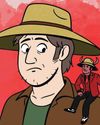
THE GARDEN PATH TO PERDITION
I WAS CRUISING RIGHT ALONG, feeling okay about myself, when I came across a list of the Seven Deadly Sins.
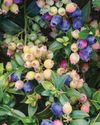
A Productive PATIO
Tiny fruit, vegetable and herb plants help gardeners maximize any sort of growing space

TROPICAL FUSION
A FUSS-FREE APPROACH TO USING BOLD TROPICAL PLANTS IN ANY TEMPERATE GARDEN

WINTER READING
Pass the time with any of these inspiring books
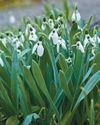
SENSING A PATTERN
Greg Coppa reflects on an odd weather year and what continued warming may mean for his Rhode Island garden
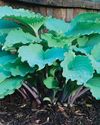
TOP-PRIZE PERENNIALS
A foliage masterpiece for shade and a late bloomer for sun

MARK WESSEL
What's new for fruit and vegetable gardeners?
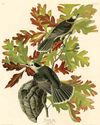
KINGS OF THE NORTHERN FORESTS
A look at the trees, shrubs and perennial plants that bolster life in Ecoregion 5

PROJECT FEEDERWATCH
Gardeners can help scientists know just where the birds are in winter